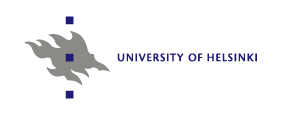Biological Ontologies and Vocabularies
SeCo is developing taxonomical ontologies and vocabularies of organisms and their names (checklists),
and publishing them as services on the Semantic Web using the ONKI Ontology Service.
Our goal is provide the public and researchers with easy to use services for finding out names of organisms in different languages, support semantic indexing of content using the URIs of taxa,
facilitate biological data integration from different sources, places, and eras (publications, databases, observations, museum collections), and support development of semantic applications in the biology domain (query expansion, semantic linking etc.).
In 2009, we first transformed the checklists 'Mammals of the World' and 'Birds of the World',
obtained from the Finnish Museum of Natural History and BirdLife, into SKOS vocabularies/ontologies (called MAMO and AVIO, repectively).
Based on this experiment, we finally published all suitable checklists of organisms, used in the Finnish Museum of Natural History.
The material includes many categories of insects, plants etc., altogether some 88,000 species.
Another line of research has been the development of the KASSU ontology
for vascular plant names in collaboration with
the Finnish Biological Society Vanamo.
On the research side, an ontological model for representing taxonomic data is being developed and integrated with the checklists.
The ontologies developed can be found on the ONKI Service.
Our work was partly funded by the national FinnONTO programme
aiming at developing a national semantic web ontology infrastructure in Finland.
Publications
2017
2015
Mikko Koho:
Linked Data -palvelu luontohavaintoaineistoille. MSc Thesis (in Finnish), University of Helsinki, Department of Computer Science, February, 2015.
bib pdf link Biologisten havaintoaineistojen julkaiseminen linkitettynä datana mahdollistaa useiden aineistojen yhdistämisen toisiinsa. Yhdistämällä toisiinsa useita samaan asiaan liittyviä aineistoja, voidaan saavuttaa parempi ymmärrys kiinnostuksen kohteena olevasta ilmiöstä kuin tutkimalla aineistoja erikseen. Näin voidaan mahdollistaa tarkempien päätelmien tekeminen aineistojen pohjalta sekä etsiä odotettuja tai odottamattomia yhteyksiä aineistojen välillä. Linkitetyssä datassa käytetty RDF-tietomalli tuo aineistoihin koneluettavuuden ja helpon tavan viitata kaikkiin aineistojen osiin. Linkitettynä datana julkaistuja aineistoja voidaan helposti rikastaa yhä uusilla aineistoilla. Tässä tutkielmassa käsitellään Hangon lintuaseman havaintoaineiston sekä Ilmatieteenlaitoksen Hangon Russarön säähavaintoaineiston mallinnusta, käsittelyä ja hyödyntämistä linkitettynä datana. Aineistot on mallinnettu käyttäen RDF Data Cube -sanastoa, joka parantaa aineistojen yhteentoimivuutta. Lintuhavaintoaineistoon on annotoitu lajitietoa käyttäen ontologiaa Suomen linnuista, jota on rikastettu mm. lajien tuntomerkkiontologialla sekä uhanalaisuustiedoilla. Aineistot on julkaistu Linked Data Finland -alustalla, ja aineistojen välisten yhteyksien hahmottamiseksi on kehitetty visualisointipalvelun prototyyppi. Säätilan tiedetään olevan tärkeimpiä päivittäisen lintumuuton voimakkuuteen vaikuttavia tekijöitä. Visualisointipalvelulla pyritään näyttämään käyttäjälle, miten säätila vaikuttaa lintuhavaintomääriin ja erityisesti havaittuun lintumuuttoon. Aineistojen välisten suhteiden parempi tuntemus mahdollistaa tarkempien päätelmien tekemisen lintuhavaintoaineiston perusteella. Tutkielmassa esitetyt menetelmät ovat yleistettävissä lintu- ja säähavaintoaineistojen lisäksi muihin rakenteeltaan samankaltaisiin aineistoihin.
2014
Mikko Koho, Eero Hyvönen and Aleksi Lehikoinen:
Ornithology Based on Linking Bird Observations with Weather Data.
The Semantic Web: ESWC 2014 Satellite Events, vol. 8798, pp. 75-85, Springer, May, 2014.
bib pdf link This paper presents first results of a use case of Linked Data for eScience, where 0.5 million rows of bird migration observations over 30 years time span are linked with 0.1 million rows of related weather observations and a bird species ontology. Using the enriched linked data biology researchers at the Finnish Museum of Natural History will be able to investigate temporal changes in bird biodiversity and how weather conditions affect bird migration. To support data exploration, the data is published in a SPARQL endpoint service using the RDF Data Cube model, on which semantic search and visualization tools are built.
2013
Jouni Tuominen, Nina Laurenne, Mikko Koho and Eero Hyvönen:
The Birds of the World Ontology AVIO.
The Semantic Web: ESWC 2013 Satellite Events, pp. 300-301, Springer-Verlag, Berlin Heidelberg, Montpellier, France, May 26-30, 2013.
bib pdf We present an ontology for managing the scientific and common names of birds. The ontology is based on the TaxMeOn meta-ontology model for biological names. The ontology is in use as an ontology service and it has been applied in a bird watching system.
Jouni Tuominen, Nina Laurenne and Eero Hyvönen:
Publishing and Using Plant Names as an Ontology Service.
Proceedings of the first international Workshop on Semantics for Biodiversity (S4BioDiv), ESWC 2013, CEUR Workshop Proceedings, Vol 979, Montpellier, France, May, 2013.
bib pdf link Animals and plants are referred to using scientific or common names depending on the expertise of an audience or a source of data. The names change in time and therefore their usage as identifiers as such is problematic. We present a solution for managing and using plant names as an ontology. The ontology is based on the TaxMeOn meta-ontology for biological names. In order to refer to organisms unambiguously and publish information as Linked Data on the web, the names are given URIs. The ontology is developed collaboratively and it supports the approval process and temporal tracking of the common names. We introduce an ontology service of plant names for end-users and provide user interfaces and APIs for integrating the ontology into applications.
Eero Hyvönen, Miika Alonen, Mikko Koho and Jouni Tuominen:
BirdWatch--Supporting Citizen Scientists for Better Linked Data Quality for Biodiversity Management.
Proceedings of the first international Workshop on Semantics for Biodiversity (S4BioDiv), ESWC 2013, CEUR Workshop Proceedings, Vol 979, Montpellier, France, May, 2013.
bib pdf link Observational data about species of public interest, such as birds and butterflies, is often created and collected by volunteered citizen scientists, and used by professionals for managing biodiversity. The education and skills of the citizens participating in the work varies a lot, and the process of making observations is typically not systematic but rather ad hoc. As a result, the quality of the observational data in repositories, such as the Global Biodiversity Information Facility GBIF Data Portal, is often not good, hampering its utilization severely. This paper presents an approach for enhancing data quality in a citizen science setting, and presents a mobile tool BirdWatch for citizen observers, mitigating difficulties in producing high quality Linked Data for biodiversity management.
2012
2011
Jouni Tuominen, Nina Laurenne and Eero Hyvönen:
Biological Names and Taxonomies on the Semantic Web - Managing the Change in Scientific Conception.
Proceedings of the 8th Extended Semantic Web Conference (ESWC 2011), Springer-Verlag, Heraklion, Greece, June, 2011.
bib pdf Biodiversity management requires the usage of heterogeneous biological information from multiple sources. Indexing, aggregating, and finding such information is based on names and taxonomic knowledge of organisms. However, taxonomies change in time due to new scientific findings, opinions of authorities, and changes in our conception about life forms. Furthermore, organism names and their meaning change in time, different authorities use different scientific names for the same taxon in different times, and various vernacular names are in use in different languages. This makes data integration and information retrieval difficult without detailed biological information. This paper introduces a meta-ontology for managing the names and taxonomies of organisms, and presents three applications for it: 1) publishing biological species lists as ontology services (ca. 20 taxonomies including more than 80,000 names), 2) collaborative management of the vernacular names of vascular plants (ca. 26,000 taxa), and 3) management of individual scientific name changes based on research results, covering a group of beetles. The applications are based on the databases of the Finnish Museum of Natural History and are used in a living lab environment on the web.
2010
Contact Information
PhD Nina Laurenne
University of Helsinki and Aalto University
nina.laurenne [at] helsinki.fi
Dr. Jouni Tuominen
Aalto University
jouni.tuominen [at] aalto.fi
Professor Eero Hyvönen
Aalto University and University of Helsinki
eero.hyvonen [at] aalto.fi


